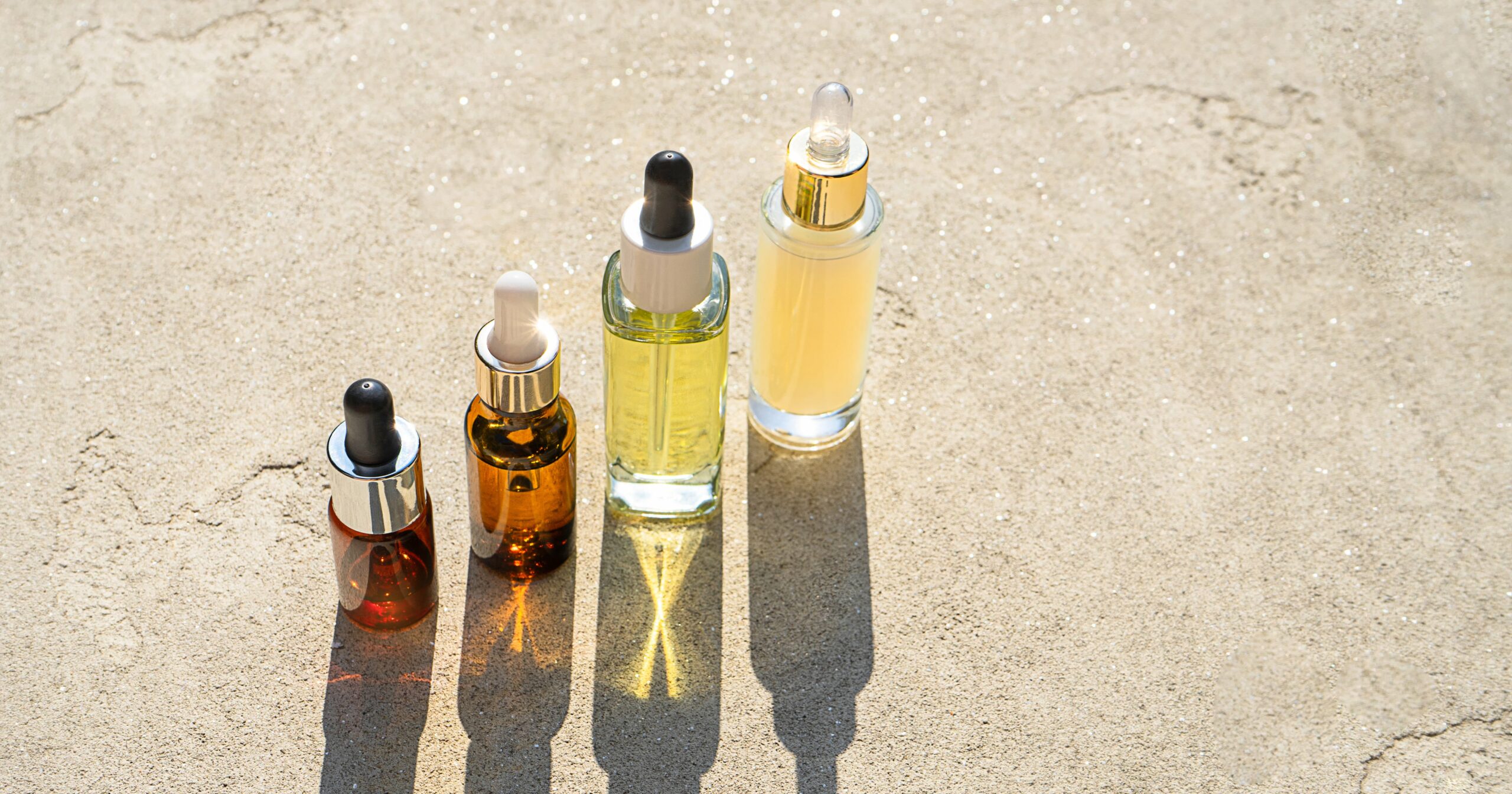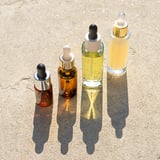When you hear the word peptides, your mind might flash to the label on your dietary supplements, like your vitamins or protein powder, but there can also be peptides listed as a skin-care ingredient in your beauty products. Most people know that peptides are good for the body, but the knowledge on the subject stops there – many don’t know exactly what they are or what they do.
Peptides for skin boast a long list of benefits, including anti-aging, wound healing, and anti-inflammatory properties, and many people can profit from incorporating them into their skin-care routine. But how? To answer that question, plus the question of exactly what peptides are and what they do for the skin, we asked two skin-care experts.
What Are Peptides For Skin?
You know amino acids? Peptides come from those. “Peptides, also called polypeptides, are short chains of amino acids that are the building blocks of proteins such as collagen, elastin, and keratin in the skin,” board-certified dermatologist Christine Choi Kim, MD, tells POPSUGAR. Julie Algier, an aesthetician at JECT in New York City, adds: “Peptides are essential to our skin structure and are present in all human cells.”
Just like amino acids, peptides occur naturally in the body, but you can also get them from external things, like food and skin-care products. “Exogenous sources of peptides in skin-care products are usually either synthetic or plant-based,” Dr. Kim says.
Peptides Benefits For Skin
Now that we’ve covered that peptides are essential to the body, you should understand what they do for the skin specifically. Peptides are anti-aging, anti-inflammatory, antimicrobial, hyperpigmentation fighting, hydrating boosting – and those are just a few of the benefits.
“Because of their small size, peptides can more easily penetrate the outer layer of the skin, unlike larger proteins,” Dr. Kim says. “They can then act as messengers to give signals to other cells.” Peptides increase collagen production and decrease collagen breakdown in the skin, which helps fight signs of aging; smooth fine lines and improve uneven texture; strengthen the skin’s structure; decrease pigmentation; increase hydration; decrease inflammation; speed the healing of wounds; relax muscles; and slow the spread of microorganisms.
“Once we enter our 20s, we begin to produce approximately one percent less collagen each year,” Algier says. “By adding in peptides to our skin-care routine, we are increasing elasticity, firmness, and collagen, reducing the appearance of wrinkles and volume loss.”
Who Should Use Peptides in Their Skin-Care Routine?
While anyone can use peptides in their skin-care routine, Dr. Kim says they’re especially beneficial for anyone over 20 and who has photo-damaged skin. “Starting to use products with peptide formulations in your 20s, when we begin to produce less collagen, is a great time to start,” Algier says. Generally, you don’t have to worry about them reacting negatively with other products in your routine. “Peptides are not as potentially irritating as other ingredients like retinol or AHA/BHAs, so they are a great introductory product for any anti-aging skin-care regimen,” Dr. Kim says.
How to Use Peptides For Skin
There’s no wrong way to start using peptides in your skin-care routine – they come in cleansers, serums, moisturizers, and face masks – and Dr. Kim says they’re safe for all skin types, unless, of course, you have a known allergy to them. “Peptides are generally well-tolerated even by sensitive skin types,” she says.
Dr. Kim and Algier both prefer serums, moisturizers, and even eye creams as opposed to wash-off products (like cleansers and masks) because they tend to deliver better results. Algier adds: “It is important to find the right formulation for you as most products have other supporting ingredients.”
Again, unlike some active skin-care ingredients, you don’t need to worry about peptides reacting with other products in your skin-care regimen. “Combining products such as vitamin C and peptides in the morning will enhance collagen production, as well as retinoids and peptides in the evening to improve the skin’s firmness,” Algier says. She also recommended you “be as consistent as you can, applying your products morning and evening.”
The only exception to this rule is copper peptide, which shouldn’t be applied with pure ascorbic acid. “While not harmful, you will miss out on the full antioxidant benefits of your topical vitamin C,” Dr. Kim says.




